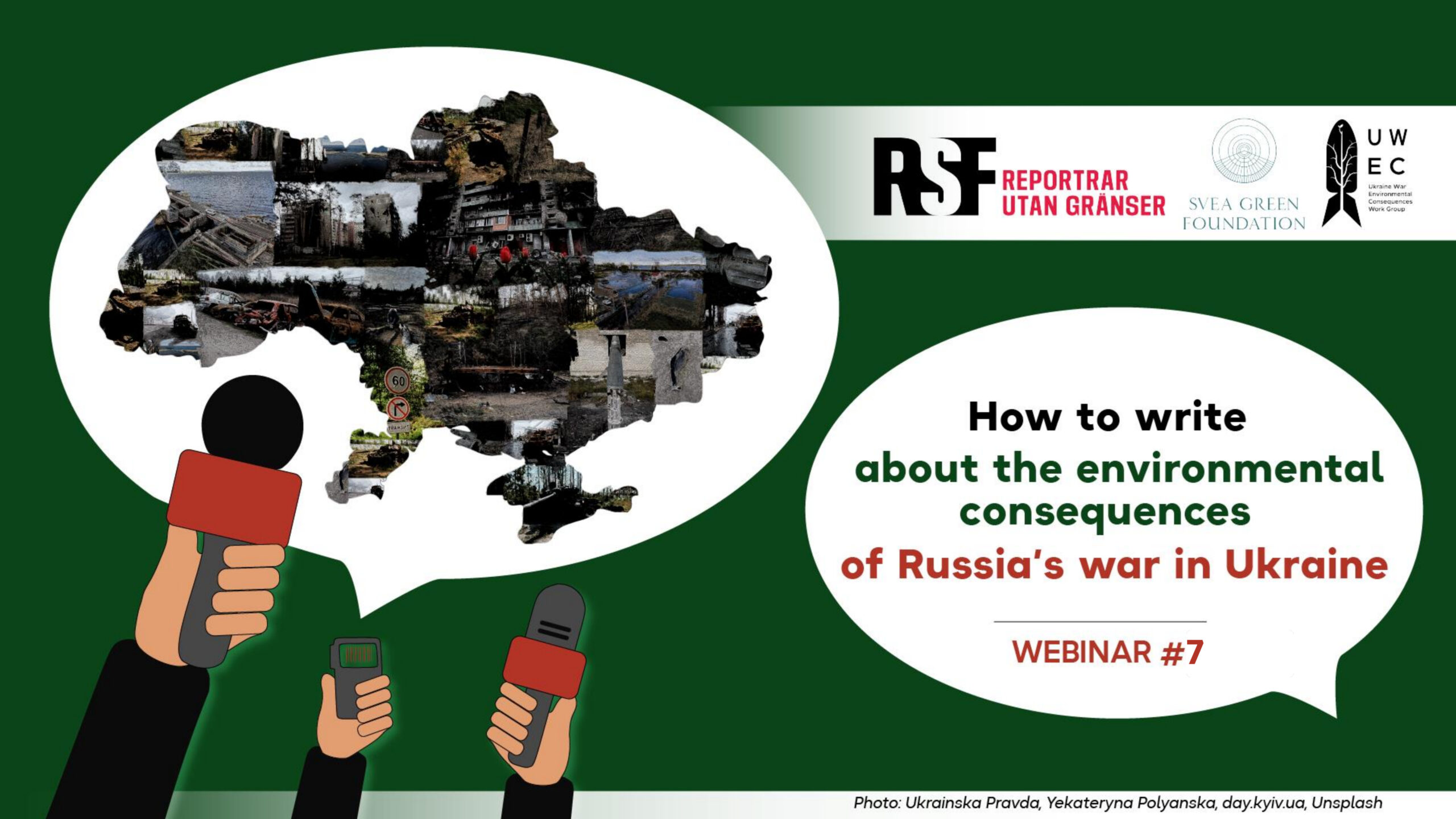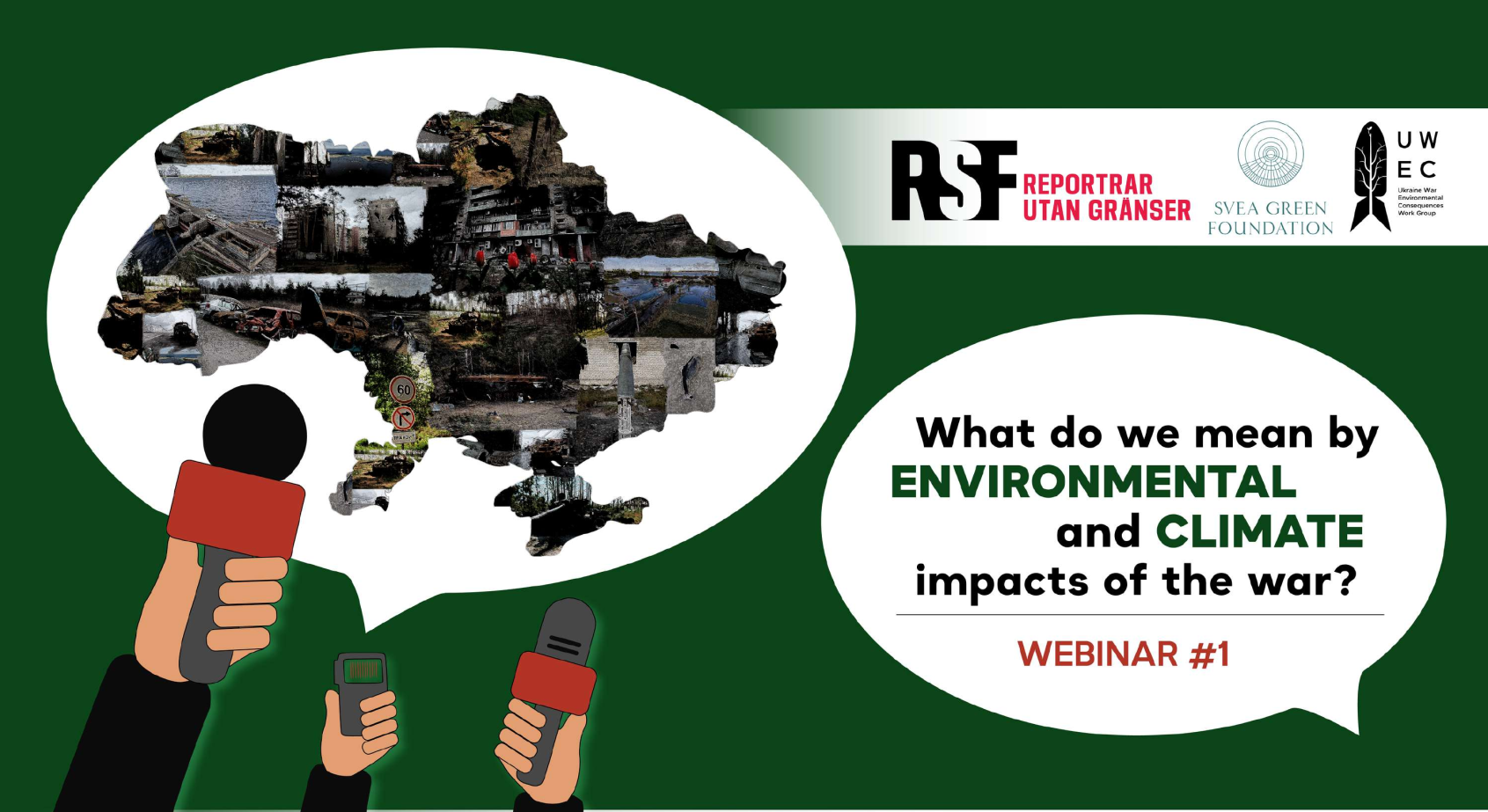UWEC Work Group together with Reporters without Borders Sweden and Svea Green Foundation held the first in a series of webinars about the environmental and climate impacts of Russia’s invasion of Ukraine.
UWEC Work Group experts Oleksii Vasyliuk and Eugene Simonov told the webinar guests about direct and indirect environmental and climate consequences of the war in Ukraine, including chemical pollution, ecosystem and biodiversity destruction, changes in environmental and climate policies in Ukraine, Russia, and other countries in the world, the war’s impact on international cooperation in the area of environmental and climate protection, and the main scenarios and pathways for Ukraine’s ongoing green reconstruction.
Webinar participants also learned about reliable and verifiable sources of information on environmental and climate consequences of the war in Ukraine and examined the most well-known environmental fake news and stories that have appeared since the beginning of the war. The UWEC work group has also compiled a list of major information resources (including further Ukrainian and international working groups) collecting and analyzing data and information on environmental damage arising during the war. Shortly before the webinar an article by Oleksii Vasyliuk about environmental fake news and ways of using it in the information war was published on UWEC’s website.
Here you can also find the presentation of our speakers:
The webinar series is being recorded and past webinars can be viewed here:
There will be seven further webinars in the series, held monthly in Russian. Topics of upcoming webinars can be found below:
- Direct environmental impact of Russia’s invasion and the consequences of chemical pollution resulting from combat operations.
- Nuclear safety and nuclear energy production in wartime conditions.
- Destruction of forests and other ecosystems, including those within protected areas. Wartime impacts to wildlife.
- Analysis of open data related to the environmental consequences of the war. Identifying errors and disinformation.
- The war’s influence on the global climate and energy agendas.
- Sanctions and weakening environmental and climate laws and policies in wartime. Environmental consequences for Russia, Belarus, Europe, and other nations.
- The war’s consequences for international collaboration in environmental conservation and climate change adaptation.
Please, reach out to us at editor@uwecworkgroup.info if you have any further questions or comments.
Design of presentation: Valeria Kolodezhna








Comment on “Webinar # 1”